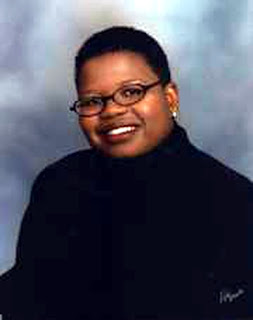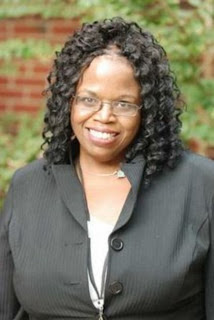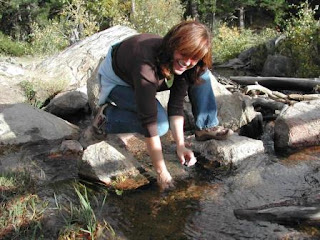BERKELEY — On a campus long dedicated to educating Californians of every background, a major effort was announced today (Thursday, Feb. 18) to establish the University of California, Berkeley, as a national leader in research, teaching and public service related to equity and inclusion.
Backed by a $16 million gift from the Evelyn and Walter Haas, Jr. Fund, the new UC Berkeley Initiative for Equity, Diversity and Inclusion will launch a sweeping array of research projects, faculty chairs, student scholarships, several dozen new courses in American cultures, and programs across the campus. The investment eventually could total $31 million, as parts of it are set up as challenge grants.
"We are in one of the most diverse states in the nation from every aspect — socioeconomic status, race and ethnicity, religion, abilities and disabilities, sexual orientation. Our campus reflects that diversity, making it the perfect place to examine these issues," said Chancellor Robert J. Birgeneau.

The new UC Berkeley Initiative for Equity, Diversity and Inclusion "will put resources behind Berkeley 's commitment to diversity, and ensure a collective Berkeley effort," says Maria Blanco, a School of Law administrator who serves on the Berkeley Diversity Research Initiative's executive committee.
To Blanco, executive director of the law school 's Chief Justice Earl Warren Institute on Race, Ethnicity, and Diversity, the $16 million gift from the Evelyn and Walter Haas, Jr. Fund helps to ensure that the work of scholars who specialize in this area will be publicly valued. The gift "validates the work of individual scholars and of departments and administrators who have been walking the talk about diversity for a long time," she says.
Area studies such as ethnic studies, queer studies and gender studies tend to be marginalized and viewed as less essential to the university than such fields as engineering, law or biology, says Blanco. She expects the new Haas-funded initiative to change the character of Berkeley 's area studies, "asserting them squarely into the main life and importance of the campus."
"I think what 's really impressive is this gift runs the gamut from recruitment to hiring to research," she adds. "It 's a multi-strategy approach, because the funder understands that 's what it takes to really make this a core discipline at a campus level."
Janelle Scott, an assistant professor of education and of African American studies, says the gift formalizes some of the activities around equity and inclusion already taking place at Berkeley. In addition to the significant size of the gift, she observes, dedicating scholarships, chairs and centers to the study of diversity has "symbolic and real importance " to students, faculty and the broader research and scholarly community.
"The work that we do here with students is critically important in creating more spaces in our future to have these interdisciplinary conversations about race," says Na 'ilah Suad Nasir, an associate professor of African American studies and of education. She's confident that the gift 's impacts will extend beyond the Berkeley campus, in part because students here will secure positions at other universities where they will establish interdisciplinary programs themselves.
"Our students will go out into the world," she predicts, "and they will be the people to really change this field."— Wendy Edelstein | "This generous gift will allow us to remain a beacon of access and excellence for students of all backgrounds," he said, "and to become a national model in this growing area of research that is of such importance to society."
Researchers soon will explore some of the most compelling issues facing California and the nation, students will be trained as leaders for an increasingly globalized world, and every corner of UC Berkeley will work to create a more inclusive campus environment. After five years, this broad range of programs funded by the Haas, Jr. Fund investment will be capable of sustaining itself.
"The UC Berkeley Initiative for Equity, Diversity and Inclusion is considered the most comprehensive initiative of its kind at a major public research university, in that it launches programs affecting and involving the entire campus community — students, faculty and staff," said Gibor Basri, appointed in 2007 as UC Berkeley's first vice chancellor for equity and inclusion. "This contribution from the Evelyn and Walter Haas, Jr. Fund is critical to our ability to expand this work and make it a permanent part of our institutional fabric."
Highlights of the initiative include:
* Five new faculty chairs in diversity-related research. They will join the Robert D. Haas Chancellor's Chair in Equity and Inclusion, established at UC Berkeley in 2008 by the Levi Strauss Foundation.
* A $1.5 million endowed scholarship matching fund for community college transfer students, who disproportionately come from economically disadvantaged communities across the state
* Some 30 new or revised American Cultures courses, required of all UC Berkeley undergraduates since 1991, that emphasize community and public service and offer opportunities outside the classroom
* An expanded mentoring and career development program for faculty members
* New tools for gathering statistics that will allow the campus to analyze the effectiveness of its efforts toward equity and inclusion
* Competitive grants, available to students, faculty or staff across divisions, for innovative projects that positively affect campus climate
* Resources and classes for students and employees on bridging cultural, physical and societal differences
The faculty members chosen or hired to hold the Haas Diversity Chairs will form the heart of the campus's four-year-old Berkeley Diversity Research Center, which will be renamed the Haas Diversity Research Center in recognition of this gift.
They will create a multidisciplinary research hub to explore issues including disparities in education, health and the economy, and diversity and democracy. One of the chairs will be focused on equity rights affecting the lesbian, gay, bisexual and transgender community, and it will be one of the first endowed chairs on this subject in the United States.
Some of the diversity-related research already underway on campus is being done by faculty members such as professor Na'ilah Suad Nasir, who left her position at Stanford University in 2008 to come to UC Berkeley.
"The Berkeley Diversity Research Center and the Haas gift are the reasons why I'm here at Berkeley," said Nasir, who studies the experiences of African American and other minority students in urban schools and communities. "I was happy with my career at Stanford, but the big draw at UC Berkeley is that you have an administration and a faculty in the midst of creating national leadership on this research. At UC Berkeley, we have the ability to build a community across disciplines."
Chancellor Birgeneau said he is thrilled that the initiative also will help prepare students for a diverse and complex world.
"The single most important skill that a 21st century student must master is 'intercultural competence,'" said Birgeneau, "which is the ability to navigate successfully among diverse groups in an increasingly globalized society."
The initiative builds upon work Birgeneau spearheaded upon his inauguration in 2005, when he dedicated himself and the campus community to creating a substantially more diverse, inclusive environment at UC Berkeley. |
Since then, the campus has begun examining how to cultivate a more inclusive workplace for staff, created a faculty-focused diversity research center, and set up UC Berkeley's first Division of Equity and Inclusion.
A $1.5 million endowed scholarship matching fund created by the Haas, Jr. investment will encourage and match contributions of $100,000 or more and provide scholarships for community college transfer students, who disproportionately come from economically disadvantaged communities across the state. These students, in addition to their extraordinary academic qualifications and high degrees of financial need, will receive this help because of their interest in community and public service leadership.
Because of its comprehensive scope, the initiative is expected to have a more lasting impact on campus than if it were a piecemeal effort focused strictly on research or on the workplace, said Christopher Edley, dean of the UC Berkeley School of Law.
"This investment meets the gold standard for philanthropy - not just generous, this will be transformative for Berkeley," Edley said. "We'll have the outstanding students and faculty to make us the undisputed center of the universe for research, teaching and service tackling one of the deepest challenges facing California, the nation and humankind. This is why I came to Berkeley."
"Cal has the potential to be a model for the nation," said Robert D. Haas, trustee of the Haas, Jr. Fund and national chair of annual giving for The Campaign for Berkeley.
"UC Berkeley historically has sought to educate Californians from every background, regardless of their financial status," he said, pointing out that a third of the campus's undergraduates come from families with incomes under $45,000, more than 70 percent receive some form of financial aid, and nearly a third are the first in their families to attend college.
"This initiative takes that public mission to a new level, propelling much-needed research on diversity and cultivating a campus built on fairness and acceptance," Haas added.
Support for this initiative is part of The Campaign for Berkeley, a comprehensive effort to raise $3 billion by June 2013 to benefit students, faculty, research, and programs, including substantial new endowment funding to preserve UC Berkeley's promise for future generations.
The Evelyn and Walter Haas, Jr. Fund is a private family foundation in San Francisco that was established in 1953. Over the last 10 years, the fund has made grants totaling more than $273 million to support initiatives and organizations that advance and protect fundamental rights and opportunities for all.
UC Berkeley By José Rodríguez, University Relations | 18 February 2010


































